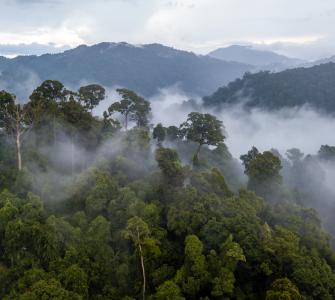As the home of more than 60% of the Amazon rainforest and other important ecosystems like the Cerrado tropical savannah, Brazil’s commitment to reduce deforestation and land use conversion is critical to global climate change mitigation.
While Brazil has established a solid legal framework for the protection of its ecosystems, eliminating illegal deforestation and conserving native vegetation remains a constant challenge. Considering that Brazil is the fifth largest country in the world, and has a diverse population of more than 212 million people, persistent social and regional inequalities makes it an even greater challenge to enforce this framework across the country.
To address this challenge, Conservation Strategy Fund (CSF) Brazil completed a GIZ-funded project to strengthen public environmental policies to implement mitigation measures. Mitigation measures seek to galvanize momentum for conservation, while providing income to traditional and native communities, and allow experimentation and test of concept, evaluating the feasibility of innovative measures and promoting informed decision-making.
Specifically, CSF conducted an economic feasibility study to provide recommendations to the Brazilian Ministry of the Environment on the best models for concessions of public forest lands to generate carbon credits from conservation and recovery activities, including investment schedule, maintenance, and a strategy for sharing resources among parties. These activities included Payment for Environmental Services (PES) and others that focused on carbon values as a performance indicator.
We worked with two locations, the Nascentes do Lago Jari National Park, in the state of Amazonas, and the Extractivist Reserve Rio Ouro Preto, in the state of Rondônia. For each conservation unit (territories dedicated to the maintenance of ecosystems and natural resources for society as a whole, with delimitation, management, and protection by public authorities), the recommendations of concession models were tested through economic feasibility methods so that it would be clear to the government how to improve and diversify the concessions of public forests in Brazil. As a result, we produced a report with advice about what concession models could be used by the government and a tool with suggestions of standards for simulating the costs and revenues of different concessions.
The analysis produced by CSF can help the government develop a carbon market in Brazil, taking advantage of the country’s huge potential of being a leader of the carbon neutral economy.
Photo Credit: Shutterstock.com

